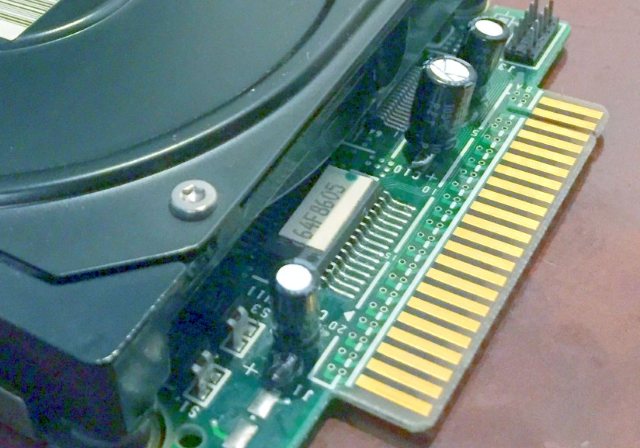PS/2 Surface Mount Capacitors
Most Personal System/2 peripherals and devices use tiny surface mount capacitors. The problem with these capacitors is that they are compromised due to their smaller pacakge so both their stability and life expectancy are greatly reduced; being the year 2016 IBM and the original manufacturers never intended the devices to be in use for this long, and they've far exceeded lifetime expectation at this point. Therefore many devices exhibit failure due to the capacitors, most famously many PS/2 FDDs and the PS/1 M2 keyboards.
The problem is reaching new heights as devices that continue to operate with these capacitors are now starting to get corrosive damage; so it's imperative moer than ever that they get replaced exclusively to prevent corrosion.
Mitsubishi PS/2 FDD
I'd like to go over the process for recapping the Mitsubishi PS/2 floppy drives; they're pretty high quality FDDs, and I'd rank the Mitsubishi (and Sony) PS/2 FDDs as some of *the* best floppy drives of all time, period! The simple issue is that two SMT electrolytic capacitors need to be replaced ASAP:
Step 1, remove the loctite adhered to two stabilizer rods, I use an X-ACTO knife:
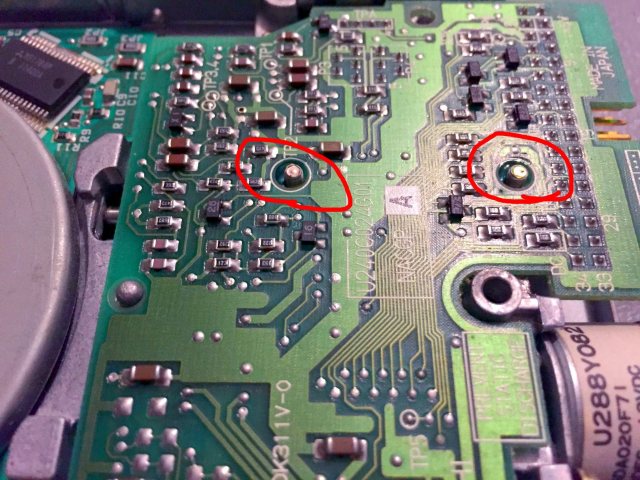
Step 2, remove the four connectors at the top as they'll rip off if you try to pull the PCB away after:
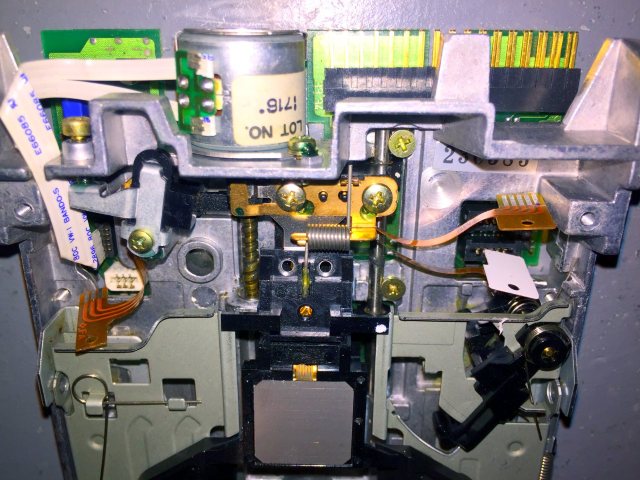
Step 3, be careful when lifting the PCB on its reverse side not to tear or pull the tiny ribbon connecting to the bottom board:
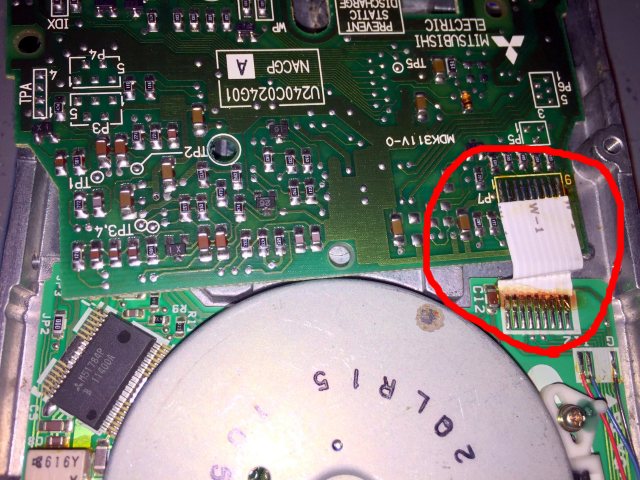
Step 4, replace the offending capacitors with 10uF through-hole, just solder the through hole leads to the pads, you can even bend them to simulate 'pads' which is usually what I do. This is not only more convenient but beneficial in two ways: A) it makes it vastly easier to remove if in 40 years you need to replace them again (lol), B) these through hole capacitors are way more robust than compromised SMT ones.
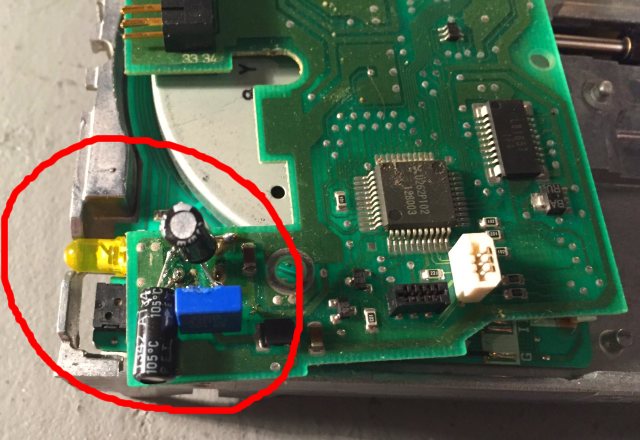
The 2.88 MB Sony PS/2 FDDs just have one through hole 33uF capacitor, and it still looks to be holding up well. The 2.88 Mitsubishi PS/2 FDDs have a through hole and SMT, both were starting to corrode when I last took a look (12/24/2016):
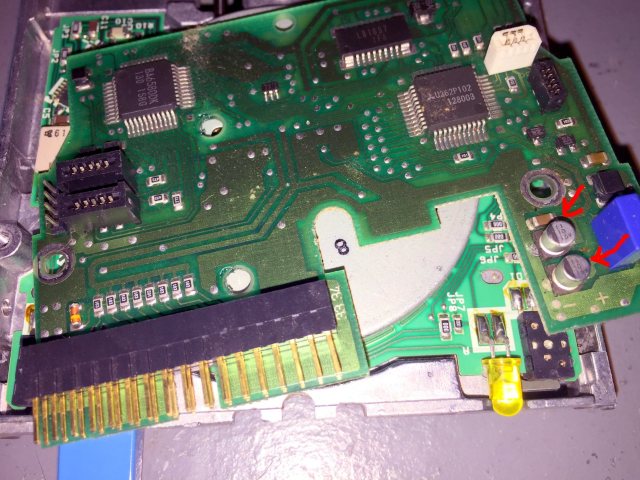
PS/2 ESDI Hard Drive
The later ESDI PS/2 HDD I had was starting to develop corroding electrolytics meaning they were breaking down and probably not delivering the required capacitance anyways. The pads had some tiny corrossion but nothing serious:
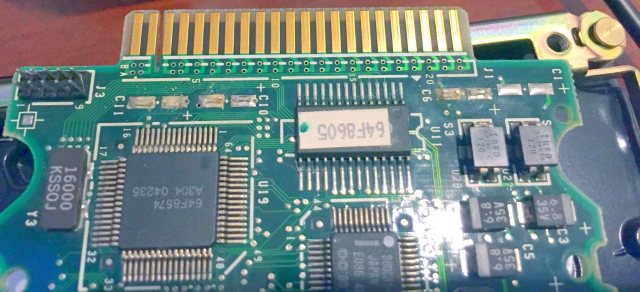
After a recap, again using the through-hole capacitor technique with bent leads:
